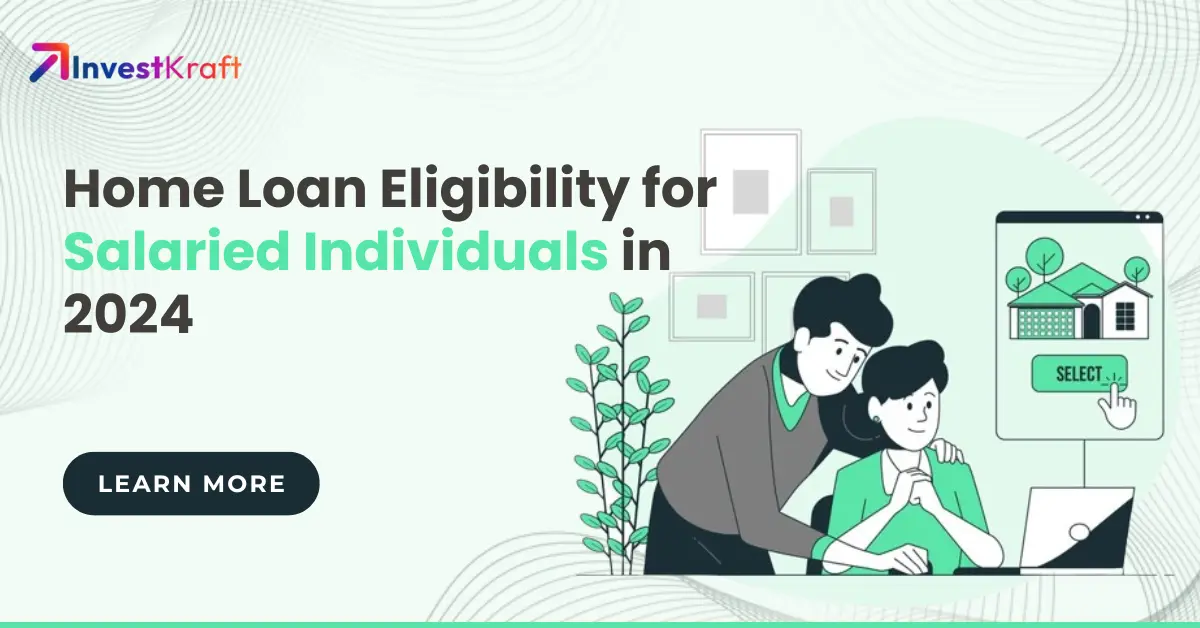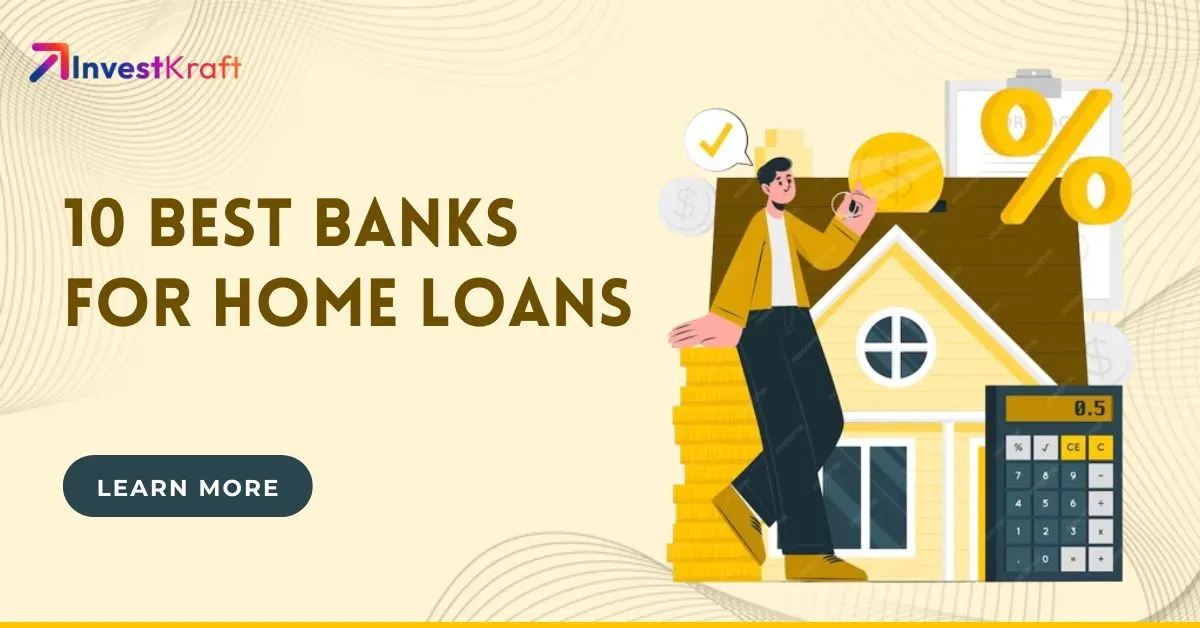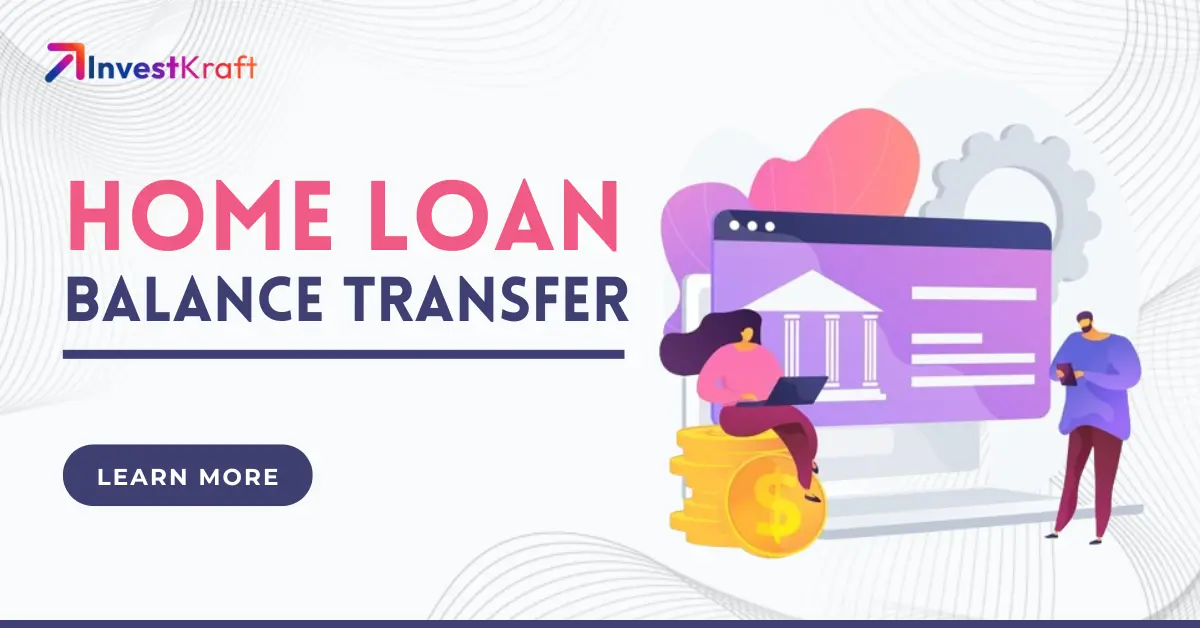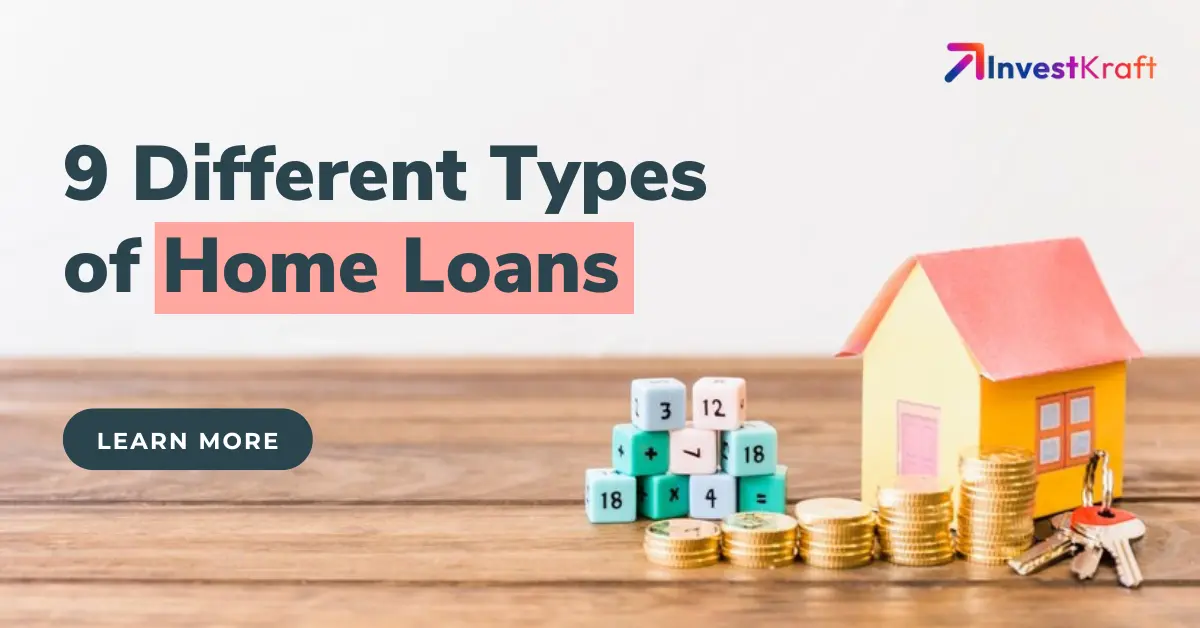Refinancing Your Home Loan: A Comprehensive Guide in 2024

If you want to save money in the long run by lowering your monthly payments or eliminating your mortgage debt, consider refinancing your current home loan. However, with numerous home loan refinancing options available, it can be difficult to begin the process. We understand the process can seem daunting but it can be a great opportunity to save money. In our comprehensive guide, we will cover everything you need to know - from finding the best home refinancers to competitive rates and much more. By the time you finish reading, you will feel confident in taking steps to reduce your mortgage payments and potentially accelerate your debt repayment.
What is the Concept of Home Loan Refinancing?
Home loan refinancing involves replacing your current home loan with a new one, often to get better borrowing terms. This can be done by replacing your current home loan with a new one, either from another lender or with modified terms from your existing lender. The purpose of home loan refinancing is to secure better-borrowing terms, usually in response to changing economic circumstances.
What Can be the Reasons Behind (Benefits of) Home Loan Refinancing?
Refinancing a home loan (mortgage refinancing) means getting a new loan to replace your existing one, potentially with different terms and a different lender. It is a financial move that can have several advantages if done in the right situation
- Reduced Rates of Interest - Lower interest rates can lead to substantial savings when refinancing a home loan. Not only does it reduce the monthly payment but it also decreases the total amount of interest paid over the loan’s life, potentially saving thousands of rupees. Refinancing is especially beneficial when market rates drop significantly below the rate of the original loan.
- Reducing Loan Duration - Refinancing your mortgage can also be done to shorten its term, such as replacing a 30-year loan with a 15-year loan. Although this may lead to higher monthly payments, it significantly reduces the overall interest paid and speeds up the process of building equity in your home.
- Converting Mortgages - Homeowners can use refinancing to switch between floating-rate and fixed-rate mortgages. If they initially choose a floating rate for lower initial rates but now want the stability of a fixed rate, refinancing can allow for this change. On the other hand, if interest rates are falling or if the homeowner plans to sell before the rate adjusts, switching to a floating rate can be advantageous.
- Utilizing Home Equity - Cash-out refinancing is a popular choice for homeowners looking to tap into their home’s equity. By borrowing more than their current mortgage balance, they can receive a lump sum of cash. This extra money can be used for various purposes such s home renovations, debt consolidation or funding education.
- Eliminating Private Mortgage Insurance (PMI) - Refinancing your home loan can be a smart move if you originally had to pay private mortgage insurance or PMI due to a down payment of less than 20%. As you build up 20% equity in your home, refinancing into a new loan without PMI can lead to significant savings on your monthly expenses.
- Consolidating Debts - Debt consolidation can be a helpful financial strategy for managing multiple debts by combining them into a single loan with a lower interest rate. This can make it easier to keep track of payments and potentially reduce the overall cost of the debt.
- Better Loan Features - Refinancing is often driven by more than just the desire to save money: it is also about securing a loan that aligns better with your requirements. This might involve seeking a loan with flexible payment terms, allowing penalty-free additional repayments or offering useful features such as an offset account or a redraw facility.
- Higher Credit Score - When people with initially lower credit scores see an improvement over time, they can leverage this progress to qualify for a loan with better terms. Refinancing their mortgage is a route they can take to access more favourable terms and save money in the long run.
- Guarantee of Fixed Interest Rate - Locking in a fixed rate through refinancing can bring stability in the face of fluctuating interest rates. This especially benefits homeowners anticipating rate increases and seeking to steer clear of the unpredictability of adjustable-rate loans.
- Investment Diversification - By refinancing, homeowners can access the equity in their homes and redirect it into other investment opportunities, like the stock market, real estate or business ventures. This strategy allows them to potentially achieve higher returns and diversify their investment portfolio.
- Better Customer Service and Facilities - Transferring your home loan offers more than just financial benefits. It also means enjoying better customer service experiences. Lenders provide improved facilities like online account management, digital loan processing and access to pre-approved offers for other financial services. These services make managing your loan easier and more streamlined.
Who Should Consider Home Loan Refinance and Why?
Homeowners in Indi can benefit from home loan refinancing as a strategic financial move. It is suitable for those with different circumstances and depending on the prevailing market conditions. Considerations involved in refinancing should be carefully evaluated before making a decision.
Homeowners Struggling with High-Interest Loans
Refinancing a home loan is a smart move for homeowners who got their loans when interest rates were high. If the current market rates are much lower than your current rate, refinancing can save you a lot on monthly payments and overall interest rates over the loan term.
Loan Borrowers Looking to Modify Terms
Refinancing offers homeowners the flexibility to adjust their loan duration to suit their financial goals. By switching to a shorter-term loan, they can pay off their mortgage faster and reduce interest costs, despite higher monthly payments. On the other hand, extending the loan term can lower monthly payments and provide immediate financial relief.
People Looking to Change Loan Types
Refinancing home loans is the process of changing from a fixed-rate loan to a floating-rate loan or vice versa. This can be beneficial when market conditions change, such as when floating rates decrease significantly, leading to lower interest costs.
Homeowners with Higher Credit Scores
If you have seen your credit score increase since you first borrowed the money, you might be eligible for improved interest rates. By refinancing in this situation, you can potentially enjoy lower monthly payments and save on interest costs.
People Thinking About Government Schemes
Refinancing with a lender that participates in the Pradhan Mantri Awas Yojana (PMAY) can be highly beneficial for eligible borrowers. The government schemes provide interest subsidies and by opting for a lender that offers these benefits, borrowers can potentially achieve substantial savings on their home loan.
People Seeking to Use Their Home Equity
Mortgage refinancing is a viable option for accessing home equity, enabling homeowners to utilize their property’s value for various purposes like renovations, merging debts or addressing financial requirements. This proves especially beneficial during periods of economic instability.
What are the Different Types of Home Loan Refinancing Processes?
Listed below are the main types of home loan refinancing processes -
Rate-and-Term Refinancing
Refinancing your mortgage is an effective way to reduce monthly payments and lower overall interest costs. By replacing your existing home loan with a new one at a lower interest rate and different loan terms, you can achieve significant savings over the life of the loan. This common type of refinancing is a popular choice for homeowners looking to manage their finances more effectively.
Cash-out Refinancing
Cash-out refinancing can be a useful tool for accessing the equity in your home to fund important expenses. By taking out a new loan for more than your current mortgage balance, you can use the extra cash for home improvements, debt consolidation or other financial needs. It is important to carefully consider the pros and cons before deciding if a cash-out refinance is the right option for you.
Cash-in Refinancing
Cash-in refinancing is a beneficial option for borrowers looking to lower their loan-to-value ratio or monthly payments. By repaying a portion of the loan, borrowers can refinance their debt and reduce the remaining loan balance. This can result in better loan terms and lower interest costs for the borrower.
Consolidation Refinancing
Consolidating refinancing, also known as debt consolidation, simplifies repayment by combining multiple loans into one monthly payment. Borrowers can avoid the hassle of managing multiple repayments to different lenders by opting for this approach.
Adjustable-Rate to Fixed-Rate Refinance
Consider refinancing your adjustable-rate mortgage into a fixed-rate loan to ensure more stable monthly payments and protect yourself from potential interest rate hikes in the future. This can provide you with greater peace of mind and financial security over the long term.
Refinance to Remove PMI
Refinancing your home and eliminating private mortgage insurance (PMI) can help lower your housing expenses if you have enough equity in your home. By doing so, you can potentially save money on your overall housing costs.
Refinancing Your Home Loan: Step-by-Step Process
This comprehensive guide will provide you with step-by-step instructions on how to refinance your home loan. It is perfect for individuals who are considering refinancing but are unsure of where to begin.
- Lower rates, shorter terms, debt consolidation and choosing the right option based on financial goals are important steps in the process.
- Calculate the financial viability of a home loan refinance by considering various costs involved, such as discharged fees, break fees, application fees, security assessment fees, settlement fees, title search fees and ongoing lender fees.
- Choose the best refinance solution by comparing home loans and carefully examining their rates, terms, features and more. Take your time when finding a loan. Ask potential lenders questions to be well-informed. Ensure you and your lender are on the same page when refinancing.
- Before starting the application for your new home loan, make sure to gather and organize all the necessary paperwork and refinance documents. This will help to prevent any potential delays in the application process and ensure a smooth transition to your new loan.
- When refinancing your home loan, lenders will revalue your property. Improve your home’s exterior, make repairs and do small upgrades to increase its value. The new valuation may impact your equity.
- Your lender assesses your credit after reviewing your documents and property valuation to ensure repayment feasibility. Once approved, you will receive a mortgage contract package.
- Once all requirements are submitted and reviewed, your new lender will pay off your existing loan. After this, you won’t be required to pay interest to your previous lender, regardless of how long it takes for them to discharge the loan.
Are There Any Potential Drawbacks of Refinancing a Home Loan?
While refinancing offers several potential benefits, it is important to be aware of certain factors and potential drawbacks associated with the process -
- Fees for Early Payment: The expenses of refinancing can include legal fees and incidental charges from the new lender. Additionally, if you have a fixed-rate home loan, you may also have to pay prepayment charges to your current lender. All of these costs contribute to the overall expense of refinancing.
- Temporary Credit Score Impact: Refinancing involves a hard credit inquiry that may temporarily lower your credit score. This is important to consider if you plan to apply for another significant loan shortly.
- Risks of Floating Interest Rates: It is important to consider the potential downside of lower initial payments with a floating rate loan. While it may seem attractive at first, there is a risk of facing higher EMIs in the future if interest rates increase. It is essential to carefully weigh the long-term implications before making a decision.
How do Economic Factors Like Inflation Influence Refinance Decisions in India in 2024?
In 2024, economic factors like inflation and the housing market have a substantial impact on refinance decisions in India. These factors play a crucial role in shaping borrowers' choices when it comes to refinancing their home loans, ultimately affecting affordability and market dynamics.
Effect of Inflation on Refinancing
Inflation affects refinance decisions in India. Inflation is expected to decrease to around 4.5 to 5% in 2024, which can lead to lower interest rates. However, the Reserve Bank of India may increase the mortgage rates by 1.5% to 2% due to inflationary pressures. This increase could discourage refinancing.
Dynamics of the Indian Housing Market
The Indian housing market is seeing robust growth in home sales, fueled by a growing middle class, urbanization and desire for homeownership. Rising property prices and borrowing costs complicate refinancing decisions. Increased equity in properties due to rising prices may make refinancing attractive but higher interest rates could deter homeowners.
Affordability of Loan EMIs
Stable interest rates in early 2024 have improved home affordability, leading to lower loan EMIs. This stability is expected to continue, encouraging homeowners to refinance and take advantage of lower interest rates.
Conclusion
Obtaining a new mortgage from a specific lender to pay off an existing mortgage is known as refinancing. In addition to other benefits, refinancing a mortgage while considering the overall direction of interest rates in the economy might result in significant savings. But some safety precautions must be implemented. Additionally, refinancing a mortgage might have important benefits, but these benefits depend on the refinance terms as well as your particular position and objectives. Even though a refinancing can give you the following benefits, there may be some associated charges.
Frequently Asked Questions (FAQs)
Q: What does it mean to refinance your home loan?
A: Refinancing allows homeowners to replace their current mortgage with a new one that often comes with different terms, such as a lower interest rate or changed repayment period. This option helps reduce monthly payments, consolidate debt or tap into home equity for cash requirements.
Q: How often should you refinance your home?
A: Homeowners can benefit from refinancing their mortgage every 2 to 5 years, taking into account market conditions and their financial circumstances. Refinancing can be influenced by factors like changes in interest rates, better credit scores or significant life events.
Q: How much does refinancing a home cost?
A: Before deciding to refinance a home in India, it is important to carefully consider the costs involved. These costs typically range from 5% to 7% of the loan amount and can cover processing fees, legal documentation and administrative charges. It is crucial to weigh these expenses against the potential savings from lower interest rates to determine if refinancing is a financially sound decision.
Q: What is the best company to refinance your home?
A: The top three companies for refinancing home loans in India, known for their competitive interest rates and favourable terms are HDFC, SBI and ICICI Bank. Before making a decision, it is recommended to compare these companies based on interest rates, processing fees and customer service.
Q: Is refinancing a home loan a good idea?
A: Refinancing your home loan can be a smart move if it significantly lowers your interest rate, usually by 1 to 2%. But, it is important to assess your financial circumstances, determine how long you will be staying in the house and weigh the potential savings against the closing costs.
Q: How does refinancing a home loan work?
A: Before refinancing your home loan, it is important to carefully consider your financial goals and the current market conditions. This process entails securing a new loan to settle the existing one, which can lead to lower interest rates, adjusted loan terms or a shift between fixed and adjustable rates. Take the time to weigh your options and ensure that refinancing aligns with your overall financial strategy.
Q: What is the process of refinancing a home loan?
A: The process of home loan refinancing involves carefully reviewing your current loan and exploring offers from different lenders. You will need to gather and submit necessary documentation, undergo a credit check and be prepared for potential closing costs. Once your application is approved, the new lender will pay off your existing loan, allowing you to move forward with the refinancing process.

Author: Abhik Das
Abhik Das is a versatile content writer with over 5 years of experience crafting engaging and informative content across diverse industries. His expertise spans the fields of ed-tech, pharmaceuticals, organic food, travel, sports, and finance.
Here's what sets Abhik apart:
Content Versatility: Able to adapt writing style and tone to suit various audiences and content needs.
SEO Proficiency: Creates content optimized for search engines, ensuring discoverability and organic traffic.
Deep Research: Conducts thorough research to ensure content accuracy and credibility across complex topics.
Engaging Storytelling: Captures reader interest with clear, concise, and compelling writing.
Abhik's diverse background empowers him to deliver insightful content across a wide range of subjects. Whether you're seeking engaging explainer pieces on the latest financial trends, informative guides to organic food choices, or captivating travelogues, Abhik has the expertise to craft content that resonates with your audience.





















